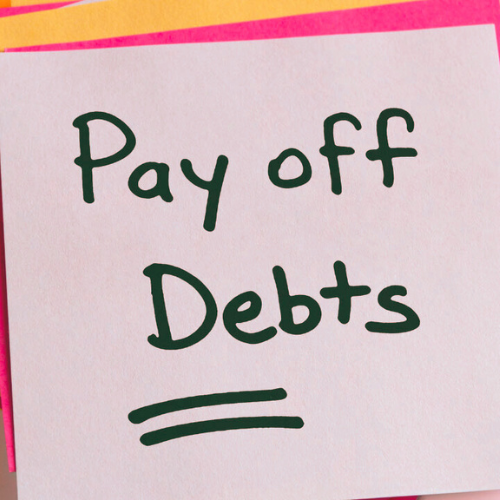In today’s fast-paced economy, grappling with financial obligations is an all-too-common experience for many individuals and families. With rising costs and sometimes stagnant wages, debt can accumulate quickly and become overwhelming. Fortunately, debt reduction services exist to help individuals regain control of their financial destinies. This post delves into the nitty-gritty of debt reduction services, offering a comprehensive guide to navigating these resources effectively.
Understanding Debt Reduction Services
Debt reduction services, sometimes called debt relief services, assist individuals in managing and reducing their debt. The primary goal of these services is to make debt more manageable through negotiation, consolidation, or even settlement. It’s a comprehensive strategy to reduce the amount you owe and streamline the repaying debt over time.
Different Types of Debt Reduction Services
There are several approaches to debt reduction, each tailored to different needs and financial circumstances:
- Credit Counseling: Credit counseling agencies provide advice and education on managing debt effectively. They help create a budget, offer financial education, and may propose a debt management plan (DMP). These non-profit organizations work with creditors to potentially reduce interest rates and waive specific fees.
- Debt Consolidation: This approach involves taking out a new loan to pay off multiple debts. By consolidating, individuals can combine several payments into one, often with a lower interest rate, making monthly payments more manageable.
- Debt Settlement involves negotiating with creditors to settle a debt for less than what is owed. While it can significantly reduce debt, it may have tax implications and impact your credit score.
- Bankruptcy: Often viewed as a last resort, bankruptcy can discharge certain debts completely. However, it can have long-lasting consequences on your credit history and should only be considered after all other options are exhausted.
Evaluating the Need for Debt Reduction Services
Before jumping into any debt reduction program, it’s essential to evaluate your financial situation:
- Assess your Debt: Gather all financial documents and list your debts, including interest rates, minimum payments, and due dates.
- Consider your Budget: Analyze your income and expenses to understand how much you can realistically allocate toward debt repayment each month.
- Evaluate your Financial Goals: Determine your short-term and long-term financial goals. This will help you decide which debt reduction method aligns with your aspirations.
Selecting the Right Debt Reduction Service
Choosing the right service is crucial. Here’s how to make an informed decision:
- Research Organizations: Check the credentials and reputation of organizations offering debt reduction services. Where possible, look for non-profit agencies and verify their accreditation with associations like the National Foundation for Credit Counseling (NFCC).
- Compare Offers: Understand the different offerings from various services. Some might have lower fees or offer additional educational resources that could be beneficial.
- Fee Structures: Before enrolling, be clear on the fee structure. While non-profit organizations may offer free services, others might charge a fee. Ensure there are no hidden charges and that you comprehend all costs involved.
- Read Reviews and Testimonials: Feedback from other consumers can provide insights into the effectiveness and customer service of the firm you are considering.
The Benefits of Debt Reduction Services
- Professional Guidance: Experts can offer personalized advice and strategies tailored to your financial situation.
- Negotiation Advantage: Trained negotiators can often secure better terms with creditors than consumers can achieve independently.
- Stress Reduction: These services can significantly decrease the stress associated with financial burdens by managing and reducing debt.
- Improved Financial Literacy: Many agencies offer educational resources to improve long-term financial habits.
Potential Downsides to Consider
While there are benefits, it’s vital to be aware of potential downsides:
- Impact on Credit Score: Some debt reduction strategies, particularly debt settlement and bankruptcy, can negatively impact your credit score.
- Taxes on Settled Debt: Debt that is settled may be considered taxable income by the IRS.
- Scams and Fraud: Fraudulent companies prey on individuals seeking debt relief. Always verify legitimacy before proceeding.
Steps to Move Forward with Debt Reduction
- Commit to a Plan: Commit to it once you’ve chosen a path. This might mean attending financial counseling sessions regularly or adhering to a strict budget.
- Track Progress: Monitor your financial progress regularly. This will help you maintain momentum and allow for adjustments if necessary.
- Celebrate Milestones: Achieving small financial goals along the way can boost morale and encourage continued commitment to the larger goal.
- Educate Yourself Continuously: Financial landscapes change, so continue learning about budgeting, credit, and debt management strategies.
Conclusion
Debt can be daunting, but navigating your way out of financial turmoil is possible with the right tools and guidance. Debt reduction services offer valuable assistance in crafting a manageable path toward financial health. By understanding the types of services available, evaluating your needs, and choosing the right service, you can confidently begin the journey toward financial freedom. As you embark on this path, ensure you remain educated, vigilant, and proactive in managing your finances for a sustainable and empowering future.

